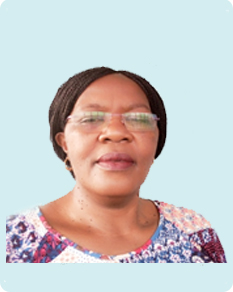
Manoash Sylvia Awour
Manoash Sylvia Awour
School of Education
RESEARCH TOPIC:
INFLUENCE OF TEACHERS’ BACKGROUND AND PERCEPTION OF SMASSE PROGRAM ON QUALITY OF TEACHING MATHEMATICS IN PUBLIC SECONDARY SCHOOLS IN KISUMU COUNTY,KENYA
ABSTRACT:
Pre-service training is not adequate to last teachers for their entire career. Due to advancement in knowledge, technology and curriculum, teachers ought to update on teaching methodologies through in-service programs. Teachers of Mathematics in Kenya have attended in-service program for the purpose of enhancing their skills and improving quality of teaching. However, this has not translated into improved performance as expected. There has been persistent low performance in Mathematics in secondary schools in general for the period 2012-2019 during which the mean score dropped from 20.12% to 19.86% nationally. The trend of low meanscore has been identified in secondary schools in Kisumu County which dropped from 34.00% to 20.45% for the same years. The purpose of this study was to establish the influence of teachers’ background and perception of in-service program on quality of teaching Mathematics. Objectives of the study were to: establish the influence of teachers’ professional qualification on quality of teaching mathematics; establish teachers’ teaching experience on quality of teaching mathematics; establish teachers’ gender on quality of teaching mathematics; determine combined influence of teachers’ qualification, experience and gender on quality of teaching mathematics and determine influence of teachers’ perception of in-service program on quality of teaching Mathematics. The study was anchored on Bowles (1970) Educational Production Function model from which a conceptual framework was developed to illustrate the relationship between teachers’ qualification, experience, gender and perception of in-service program on quality of teaching mathematics. Descriptive survey and correlation designs were employed in the study. Population size was 234 teachers, 25 INSET trainers, and 7 SQASO. Sample size was 70 teachers, 6 SQASO and 22 INSET Trainers. Saturated sample was used to select 6 SQASO and 22 INSET trainers. Research instruments were MTQ, LOG, ITIG and SIG which were scrutinized by experts to establish their validity. A pilot study was carried using test-retest method and the reliability coefficient of MTQ was .72, LOG .78, ITIG .81 and SIG .82. Quantitative data was analyzed using arithmetic mean, standard deviation, frequencies and percentages. Inferential statistics involved correlation analysis, regression analysis, Independent t-test and ANOVA (one-tailed). Qualitative data was analyzed by creating thematic categories and reported as verbatim excerpts. Findings revealed that teachers’ qualification had significant differences with Master’s holders performing best (M=67.3; SD=6.63). Teachers’ experience had significant differences with teaching experience of over 10 years performing best (M=63.82; SD=5.39). Independent t-test established teacher gender as statistically insignificant (t= -.572, p=.571). Multiple regression analysis revealed the combination of teachers’ qualification, experience and gender explains 42.4% as signified by Adjusted R2=.424. On perception, teachers’ were positive about the in-service program and the most significant input variable which influences perception on quality of teaching mathematics is implementation of ASEI/PDSI with a correlation coefficient of .715 significant at the.01 level (2-tailed), with R2=.552. It is recommended that teachers’ with qualification of M.Med to be appointed INSET trainers, over 10 years’ experience be appointed as HOD, many female teachers to be posted in boys’ schools, more qualified and experienced teachers to be appointed as SQASO and SQASO to do a follow up on implementation of ASEI / PDSI.


